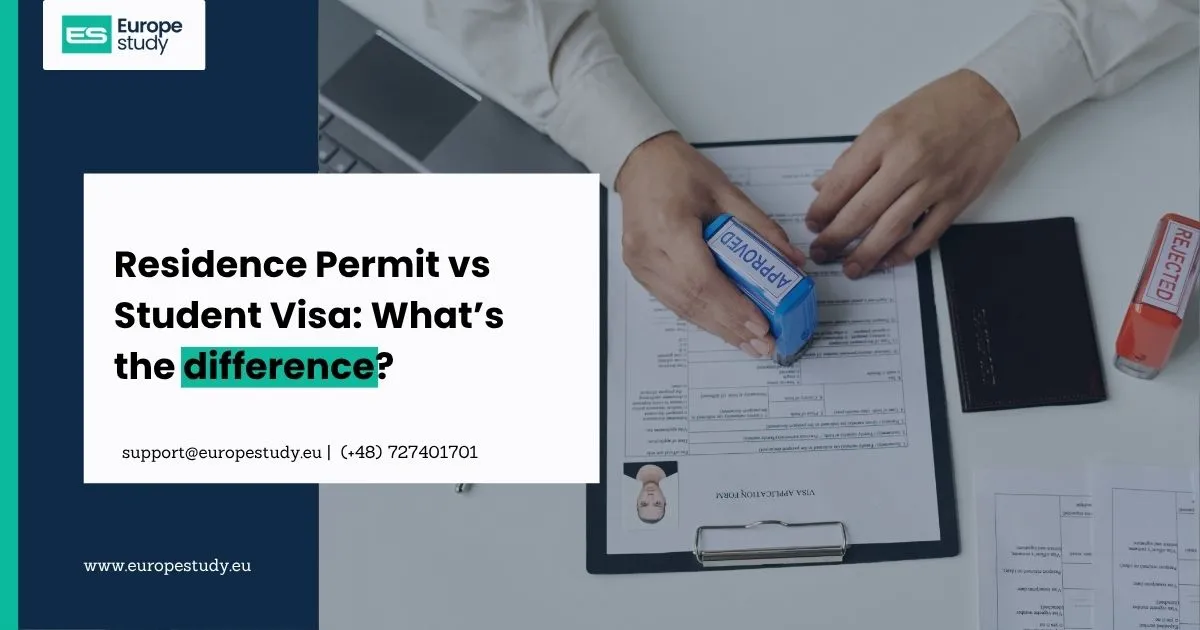
Residence Permit vs Student Visa: What’s the difference?
Many students planning to study abroad often get confused between a student visa and a residence permit. While both are essential for legal stay in a foreign country, they serve different purposes and have distinct requirements. Understanding the difference is key to avoiding legal issues and ensuring a smooth academic experience.
What Is a Student Visa?
A student visa is a temporary travel document that allows you to enter the country for the purpose of studying. It is usually issued by the country’s embassy or consulate before you travel.
Key Points About Student Visas:
-
Valid for short-term travel or study (often 3–6 months initially)
-
Must be obtained before arriving in the host country
-
Allows entry and initial stay, but not long-term residence
-
Often requires proof of admission, financial means, and health insurance
A student visa is essentially your entry permit to begin your studies abroad.
What Is a Residence Permit?
A residence permit allows you to legally reside in the host country for an extended period, typically for the duration of your studies. Once you enter the country on a student visa, you may need to apply for a residence permit to stay longer than the visa allows.
Key Points About Residence Permits:
-
Issued by immigration authorities inside the host country
-
Valid for the full duration of your studies (renewable annually if needed)
-
Grants the right to live, study, and sometimes work part-time
-
Required for long-term residency or future visa renewals
Essentially, a residence permit is your legal authorization to stay and live in the country while studying.
Main Differences at a Glance
| Feature | Student Visa | Residence Permit |
|---|---|---|
| Purpose | Entry into the country for study | Legal stay during studies |
| Issued By | Embassy or consulate (outside the country) | Immigration authority (inside the country) |
| Validity | Short-term (few months) | Long-term (duration of study) |
| Work Rights | Limited or none | Often allows part-time work |
| Renewal | Usually not renewable | Renewable for the length of the program |
| Requirement | Proof of admission, financial means, health insurance | Enrollment confirmation, housing proof, continued financial stability |
How They Work Together
-
Apply for a Student Visa: Obtain the visa from your home country before travel.
-
Enter the Host Country: Use your student visa to legally enter the country.
-
Apply for Residence Permit: Within the specified period after arrival, apply to local authorities for a residence permit.
-
Study and Live Legally: The residence permit allows you to stay for your entire course and, in many countries, work part-time.
In most European countries, both are mandatory for international students, and skipping either step can cause legal complications.
Tips for International Students
-
Always check the specific rules of your destination country.
-
Keep copies of all documents, including admission letters, visa approvals, and residence permit confirmations.
-
Apply for your residence permit well before your student visa expires.
-
Understand your work rights on the residence permit, especially if you plan to work part-time.





